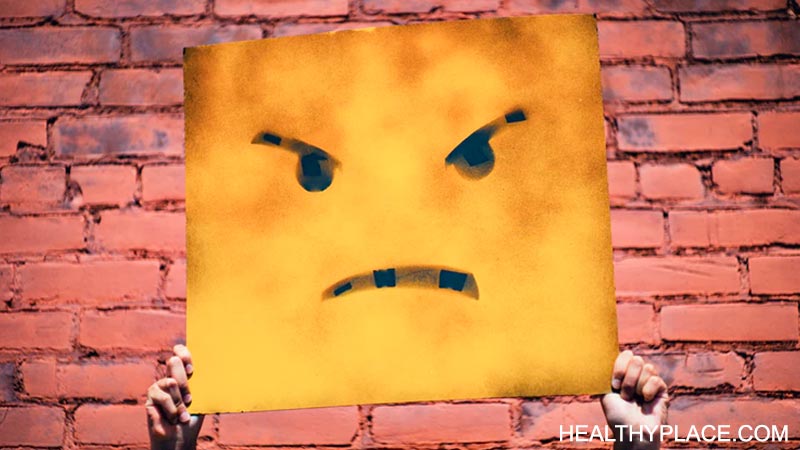Why Am I So Negative and Angry and Depressed?

Have you ever asked yourself, “Why am I so negative all the time?” If the answer is yes, then you’re like many other people who have constant negative thoughts. Although negativity goes hand-in-hand with depression, being negative or feeling low is not necessarily a sign of mental illness ("Negative Thinking and Depression: How One Fuels the Other"). The commonality of negativity and depression means that they are easy to treat. However, you must first be able to identify the underlying causes of these symptoms. Learn why you’re so negative all the time, and whether depression could be a factor.
Where Negativity Stems From: Why Am I So Negative?
Negative thoughts occur in a variety of forms, including:
Catastrophizing: Always assuming the worst possible outcome is inevitable.
Black and white thinking: Also known as “polarized thinking.” Seeing everything as either one extreme or the other.
Personalizing: When you assume that you are to blame for everything that goes wrong.
Filter thinking: Focusing only on the negative sides of a situation and ignoring the positives.
According to LiveScience, negative thoughts are classified in the medical field as “cognitive distortions.” These distortions reflect the “ways that our mind convinces us of untruths.” They will not only generate negative thinking and emotions, but they will also reinforce negative thinking by repeating them on a loop. Cognitive behavioral therapists often refer to these as “sticky thoughts.”
Negativity and Depression
If you’re prone to negative thinking, you may already understand the interplay between negative thoughts and depression. You experience one sad or upsetting thought after another, which takes its toll on your mental health. You ask yourself, “Why am I so negative?” and depression only seems to turn the problem inward; to make you feel it is all your fault.
This cycle can be confusing and frustrating. You may not be sure if depression is causing your negativity, or if your negative thoughts are causing your depression. The answer is rarely straightforward. Mental health is a complex issue, so it’s best to let your doctor or therapist analyze your symptoms.
Depression symptoms can also present as anger or irritability. If you experience these feelings on a daily basis, or if you're always asking yourself, "Why am I so negative and angry?" then it's important to see your doctor in case there is an underlying cause ("I Think Bad Thoughts: What Can I Do?").
Negativity and Stress
Negative thoughts can also occur because of stress. According to WebMD, people who are stressed experience "constant worrying" and "being pessimistic or only seeing the negative side." Other symptoms of stress include racing thoughts, inability to concentrate, poor judgment, insomnia and headaches.
Your doctor will be able to assess you and find out whether you have a stress-related illness. If so, he or she may suggest some lifestyle alterations alongside other treatment, such as medication or therapy.
How to Change Negative Thought Patterns
No matter what the cause of your persistent negative thinking, you can learn to challenge your negative thought patterns by refuting the cognitive distortions as they arise. This involves identifying negative thoughts as they enter your brain and offering another perspective to shut them down. Frances McIntosh from Intentional Coaching LLC advocates literally talking to your negative thoughts to counteract them:
“Let your internal voice say, ‘I’m recognizing a negative thought; it’s a story I’m telling myself, and it’s not true.’”
If you are able to find a quiet spot, it can be useful to meditate on these words with your eyes closed for a few minutes to let them sink in. Although repeating these words may feel silly, know that you are working hard to challenge the automatic thoughts you've spent a long time going over.
When to Seek Help for Negative Thoughts
Once you’re stuck in a cycle of negativity, changing your thought patterns can be difficult, which is why many people seek help at this stage. If you feel like your daily life is impacted by constant or reoccurring negative thoughts, it might be time to talk to your doctor.
Remember that treatment doesn't always mean medication. In the case of negative thinking, "getting help" can mean learning to employ cognitive behavioral therapy (CBT) techniques that help you take a proactive approach toward improving your health and wellbeing.
In the meantime, you can use the technique outlined in this article to help you spot negative thoughts, before letting them go.
APA Reference
Smith, E.
(2021, December 31). Why Am I So Negative and Angry and Depressed?, HealthyPlace. Retrieved
on 2026, March 4 from https://www.healthyplace.com/self-help/positivity/why-am-i-so-negative-and-angry-and-depressed



